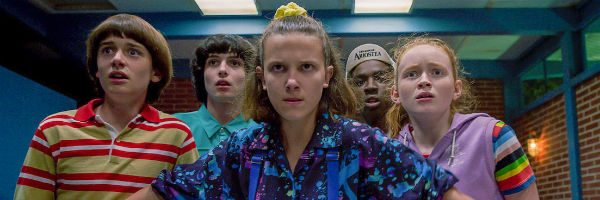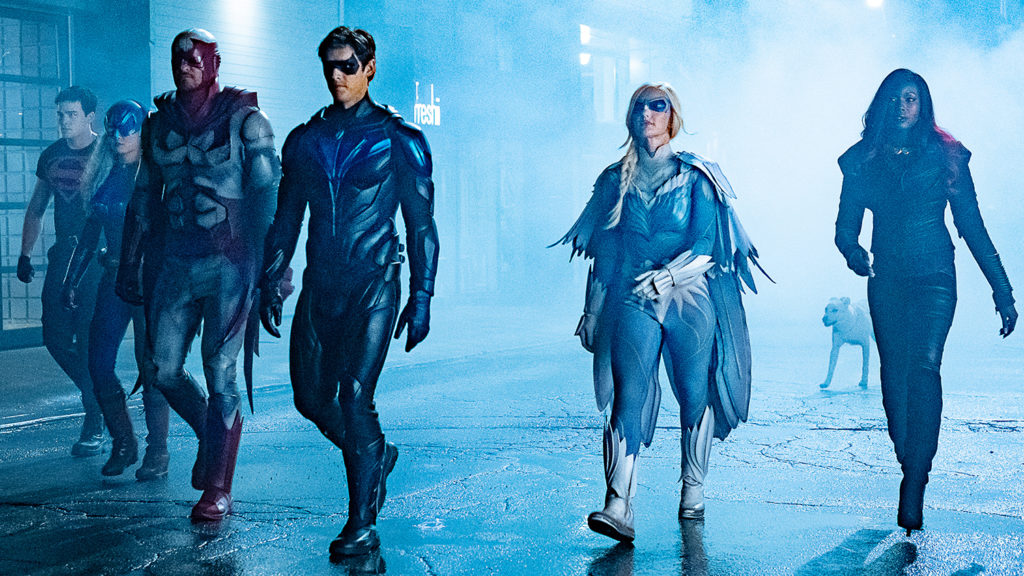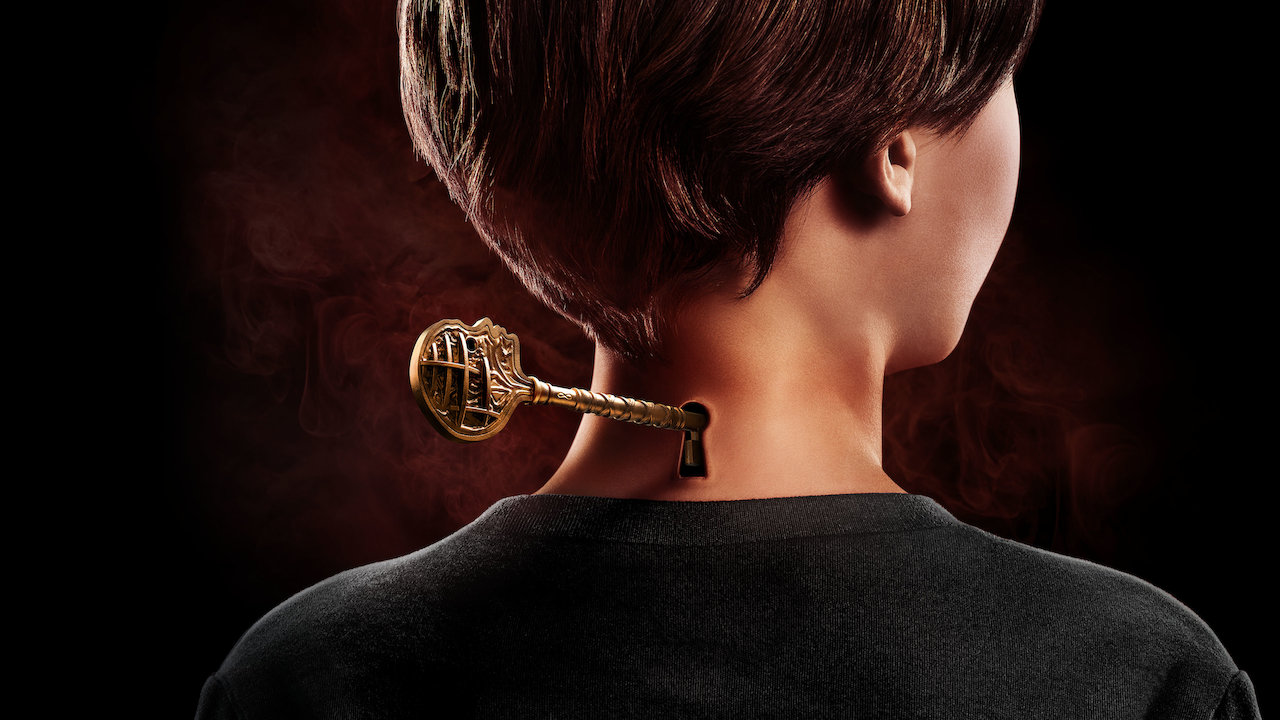When Spy Kids came out way on back in 2001, I thought “Man that looks pretty dumb.” And then a wise friend said “Sure, but I’d have watched the heck out of it when I was ten.” And I thought, sure, yeah, me too. That was the sort of story I grew up on. Kids my age (or close to) getting into high-stakes adventures with monsters and pirates and other sci-fi/fantasy/espionage elements. Monster Squad, Time Bandits, The Lost Boys, IT, The Neverending Story, and of course the chairman of the company, The Goonies. Sure Spy Kids wasn’t being aimed at me, but why shouldn’t the next generation have similar movies to latch onto?
(As well as The Goonies, of course, it is for all generations.)
That said… I wasn’t the only one who grew up on these magical kids’ adventure stories. And if there’s one thing the entertainment industry thrives on, it’s milking nostalgia in an attempt to squeeze money from audiences.
And so a new genre seems to be forming… 80s-style magical kids’ adventure stories, but designed to appeal to adults and youths alike.
The very obvious example, one that may have sprung into your mind the second I brought this up, is Stranger Things.

Image: Netflix
Stranger Things is both loved and criticized for the way it weaponizes nostalgia in its narrative, creating a pastiche of the Goonies and the Loser’s Club and having them battle otherworldly monsters alongside a magic girl, using Dungeons and Dragons and sometimes dressing as Ghostbusters. It’s a sci-fi fantasy conspiracy thriller that uses 80s nostalgia to flavour the story the way a fancy cocktail might use simple syrup*, and its a little hacky, but I love it.
(*I did just finish a course on cocktails, why do you ask?)
And on the far side of the spectrum, we have this lot.

Photo Credit: Brooke Palmer / Warner Bros. Entertainment Inc.
Titans is about literal magic teens being mentored by 20-something former teen heroes. It would be perfectly aligned for a teen audience… except they curse like they’re out of a Tarantino movie, the fight scenes are often brutal and bloody, and yeah, in season one they go to Pound Town (if a non-graphic suburb of Pound Town) more often than any other superhero show save for Watchmen. (Sister Night and her husband have a passionate and fulfilling sex life and good for them.)
Or in other words, they act exactly like young people would in their situation. Hand-to-hand fights aren’t clean, they get in situations that frankly require frequent cursing*, and I’ve been reading comics about Nightwing almost as long as there have been comics about Nightwing to read, and I am here to tell you, Dick Grayson fucks.
(*I’m not mad that the Titans swear, I’m mad that Gotham wasn’t allowed to. Given what happened in an average season, Harvey Bullock should have been dropping F-bombs like it would cure cancer.)
It is… it is still a little weird that they took almost the exact lineup from successful kids’ show Teen Titans GO! (save for Cyborg, last seen hanging with the Doom Patrol) and made a hard-R curse-filled punchfest, instead of saying “All those TT:G fans are teens now, let’s make it a blend of action and YA romance, you know, like the entire Arrowverse, which one of our producers created.” But here we are, magical teens and ex-teen sidekicks in a show clearly aimed at adults that teens probably still watch, I mean it’s not the 80s anymore, teens find stuff.
And in between these two, we find Locke and Key.
Based on the graphic novel by Joe Hill and Gabriel Rodriguez, Locke and Key finds the Locke family (mother Nina, high school students Tyler and Kinsey, and kid brother/possible oops-baby Bode, which against all logic is pronounced Boh-dee) moving from Seattle to small-town New England for a fresh start after family patriarch Rendell Locke is killed by a troubled classmate of Tyler’s. They move into the Locke family estate, Key House… a place Rendell and his brother (Smallville’s Fake Jimmy Olsen, Aaron Ashmore, playing a character who maybe will be important in a later season?) have avoided for years.
Tyler meets a girl he likes, but she’s passionate about causes and he’s only passionate about self-destruction; Kinsey meets some new friends who want to make a horror movie; Bode befriends a neurodiverse teen with a similar affinity for GI Joe. That would all be great, except for two little issues. One, Bode discovers that Key House is filled with magical keys (go figure), each with their own power; and two, there’s a sinister woman at the bottom of their well who wants the keys for herself, and it does not seem like it’s for a good reason.
The Locke siblings must find and decipher the keys, unravel their father’s past, and also try not to let their teenage melodramas distract them from the fact that a murder ghost is targeting their family to steal magical keys.
And the result is… good. Quite good. Really gripping. Yes, the leads can be frustrating, but they’re teens (and one pre-teen) coping with a horrifying tragedy, one of whom has some pretty strong PTSD and one of which thinks it’s his fault, you can’t entirely blame them for not being their best selves all the time. It’s close to the kids’ adventures I remember, but felt much darker and less… kiddy.
So let’s look at Locke and Key and how they built an adult-friendly magical kids’ adventure story, with Stranger Things* as our exemplar and also touching on Titans because it’s weirdly thematically similar, and also Titans really upped their game this season and that’s worth noting.
(*We’re three seasons in, either I don’t need to explain Stranger Things to you or you’ve decided you don’t care about Stranger Things and no explanation will matter.)
Geronimo.

